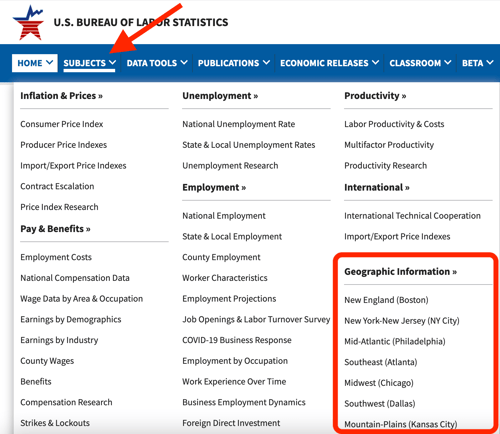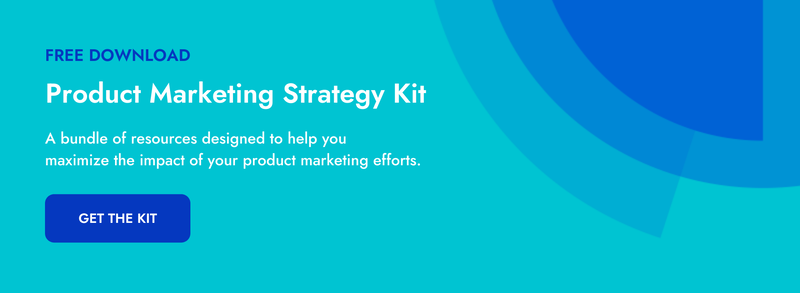 Crayon's Product Marketing Spotlight is an interview series where we chat with product marketers to get a glimpse into their careers and gain unique insight into product marketing strategy. In this edition of Product Marketing Spotlight Series, we shine the light on Annum Munir, Product Marketing Manager at Google Cloud.
Crayon's Product Marketing Spotlight is an interview series where we chat with product marketers to get a glimpse into their careers and gain unique insight into product marketing strategy. In this edition of Product Marketing Spotlight Series, we shine the light on Annum Munir, Product Marketing Manager at Google Cloud.
ED: What is your role?
AM: I’m a Product Marketing Manager for Google Cloud, working on Firebase, which is Google’s app development platform for mobile and web apps. In my current role, I help developers understand how they can build, improve, and grow their app with Firebase - whether they work at a one-person startup or a large enterprise. A core part of my job is to stitch together our various product launches into a cohesive narrative. I do this by translating the “what” my product and engineering teams build into the “why” it matters to customers. It’s my responsibility to tell the story of how our platform benefits and supports developers so they can focus on doing what they love.
ED: What does the company do?
AM: Google’s mission is to organize the world’s information and make it universally accessible. The core value of our brand is to be helpful. With our consumer-facing products, people can virtually explore the world, organize their day-to-day tasks, discover endless hours of entertainment, learn a new skill, and so much more. Similarly, our business-facing products (part of our Google Cloud portfolio) help companies keep their data safe and secure, get answers from it, digitize and modernize their infrastructure, and transform the way they work. Basically, whenever you have a question or a business need - just Google it and we’ll get you an answer or solution pronto.
ED: Tell me a little bit about your career path. What was your first job, and what else happened along the way to bring you to where you are now?
AM: At 19, I landed my first job, which was an internship at Microsoft Canada. During this time, I was a student enrolled at the University of Toronto, but thankfully this job didn’t entail photocopying, hours of data entry, or coffee runs for my boss. Instead, I learned how to apply the marketing principles I was learning in class in a real-world setting. At Microsoft, I worked on the Small and Medium Size Business team managing our customer advisory (research) panel, email communication, and online ad campaigns. My second internship was at General Electric, in their healthcare division, so I got to see a more traditional side of marketing there (read: printed collateral creation and events).
After graduating with a Bachelor's degree in Business Administration, I moved to Boston and joined the hot startup scene working for companies like HubSpot and Localytics. Then, I went to Twitter and eventually our division was acquired by Google.
At startups you have freedom but money is tight, so I learned to use inbound marketing and content to grow a business. My tenure in the startup world taught me how to be agile and resourceful because when your team is small, roles are fluid, and the future uncertain, you feel immense ownership in charting your company’s path and have a huge opportunity to step up. At Fortune 500 companies, you have access to a solid budget, but you also need to learn how to work around established policies and protocol to make your mark. In both instances, success requires a little creativity.
ED: What skills do you think are necessary for a product marketer to grow in their career?
AM: Storytelling!! A marketer’s job is to communicate a company’s vision and frame how its products serve the mission. People don’t remember product pitches as much as they remember stories rooted in emotion. Don’t focus your awareness and go-to-market strategy around the features and implementation details of your product. Instead, tell a story about how your product can remove proverbial thorns and make your customers’ lives better. Paint a picture of the happy ending.
ED: What is your advice for someone who is planning a product launch for the first time?
AM: Before you create any asset for the product launch, write a product narrative. Although this is an internal document, it should lay out the one liner that captures the product value, the 50-word description, the key messages / benefits, and the competitive landscape. This document should inform all public comms for the product launch. The goal of this narrative is to get your entire go-to-market team on the same page about how to speak about the product (i.e., position it in the market), highlight its differentiators, and answer the question, “Why should customers care about it?”
ED: What advice do you have for someone who wants to start a job in product marketing?
AM: Product marketing is one of the most cross-functional teams in a company. Not only will you have to interact with the broader marketing and PR team, you’ll also work closely with product managers, engineering, sales, design, and research. So my advice is to learn to work with a diverse group of people and personalities with differing styles and motivations. It takes a village to bring a product to life, so being a good product marketer is a balancing act of managing opinions, expectations and pressures. Be good at listening, but also remember that you are the expert in launching a product to market and ultimately, you should guide the narrative.
The other piece of advice I have is to develop a trusted partnership with your product leadership. When you peek behind the curtain to understand how a product goes from concept to launch, you’ll naturally be able to market it better.
ED: How do you get your sales team to actually use your sales enablement resources?
AM: The interesting thing about my team is that we actually don’t tap into a traditional sales organization. Firebase, the product I work on, has a generous free tier, and our target audience is developers, who are much more likely to trust fellow engineers than salespeople. That’s why I partner with our Developer Advocates on the educational content we create, which is usually deeply technical.
We do have a business development team though, who engage C-suite or upper management at larger companies about the broader value of Firebase and Google Cloud. I get them to use the sales enablement resources I create by establishing a good working relationship with them, and by involving them in the process. Simply asking your sales team, “Hey, what do you need? What questions are customers asking? How can I better arm you for your conversations?” is mutually beneficial because you’ll get insight into what reps need, and what they’ll actually use.
ED: What programs or resources have you found to be most impactful throughout your career?
AM: No specific program or resource comes to mind. But I’ve always found my previous role as a content marketer to have had a big impact in making me a strong storyteller, which is a rare but highly transferable skill. I have learned a lot about the marketing and mobile industries by writing well-researched content and commentary about these spaces. Reading, writing, and teaching others will do more for you than you know.
ED: What’s the best career advice you’ve ever received?
AM: “It’s better to ask for forgiveness than permission” and “Get comfortable with being uncomfortable.” When you see a problem, take initiative to try and solve it proactively. Don’t let the need to get approval and sign-off delay you or cause you to miss the opportunity to change the status quo. And don’t get too comfortable in your day-to-day routine, because if you stop trying new things that make you uncomfortable, you’ll stop learning and growing. A stagnant mind leads to a stagnant career.
ED: When you’re not hard at work, what’s your favorite thing to do?
AM: So glad you asked! Because now I can shed the “work me” persona and talk about what the “fun me” does (just kidding, I like to think I’m fun all around). When I’m not launching products, I love to blog about my adventurous and artistic pursuits. This is my personal online space that I hope to use to inspire other Muslims to travel more mindfully, and to infuse creativity into their home, decor, and events.

Related Blog Posts
Popular Posts
-
 How to Create a Competitive Matrix (Step-by-Step Guide With Examples + Free Templates)
How to Create a Competitive Matrix (Step-by-Step Guide With Examples + Free Templates)
-
 Sales Battlecards 101: How to Help Your Sellers Leave the Competition In the Dust
Sales Battlecards 101: How to Help Your Sellers Leave the Competition In the Dust
-
 The 8 Free Market Research Tools and Resources You Need to Know
The 8 Free Market Research Tools and Resources You Need to Know
-
 6 Competitive Advantage Examples From the Real World
6 Competitive Advantage Examples From the Real World
-
 How to Measure Product Launch Success: 12 KPIs You Should Be Tracking
How to Measure Product Launch Success: 12 KPIs You Should Be Tracking





%20(1).png?width=500&name=CI%20Strategy-CI%20Audit%20(1)%20(1).png)